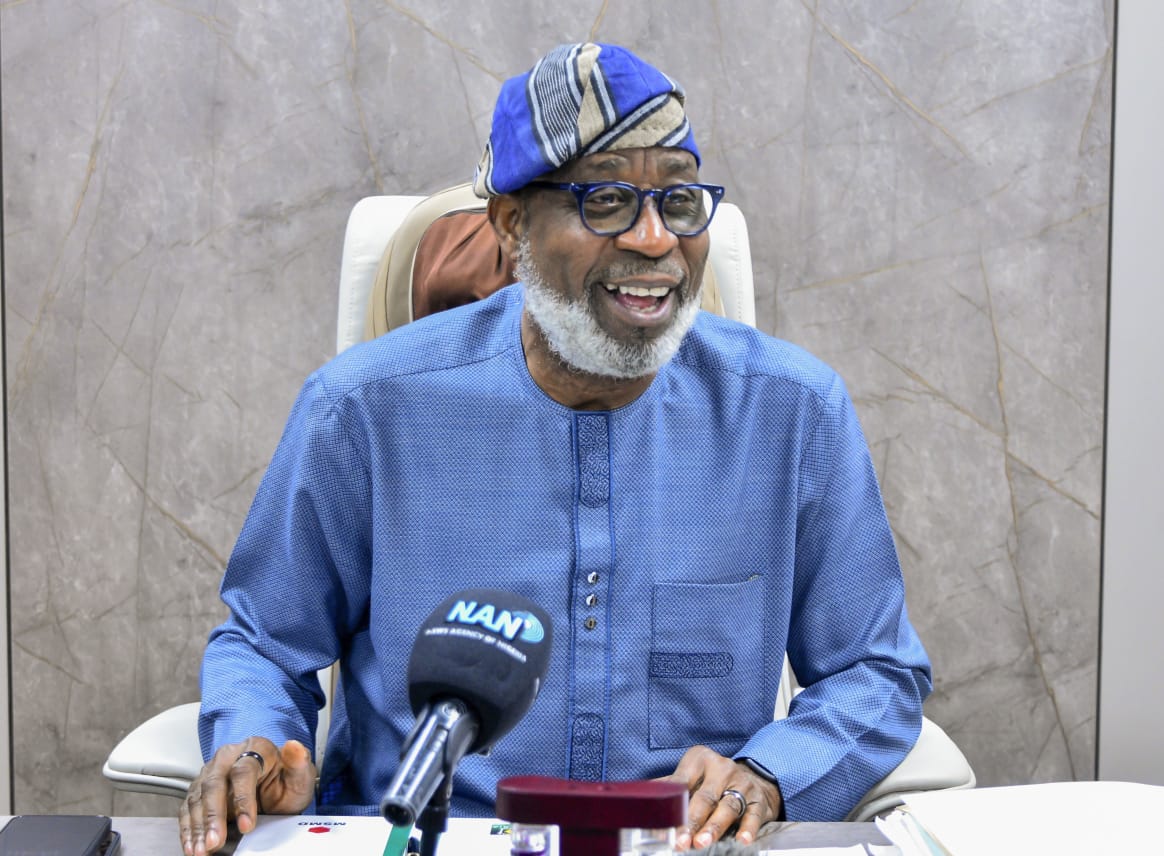571 total views today
By Martha Agas
The Minister of Solid Minerals Development, Dr Dele Alake, has said that Nigeria must move beyond extraction in mining to reap the gains of the sector.
Alake stated this at a press conference to kick-start activities of the ninth edition of the Annual Nigeria Mining Week on Tuesday in Abuja.
He said that even though Nigeria was blessed with 44 minerals and possesses the critical minerals needed for energy transition, it must move beyond extraction to yield its full potential.
“We are focused on establishing systems and structures that allow Nigerians to benefit directly from our resources.
“Through local value addition, processing and beneficiation, our aim is to transform Nigeria’s wealth into industrial and economic power, generating jobs and supporting local businesses in ways that ripple through our economy.
“Lithium processing plants have been inaugurated in Nasarawa State, and plans are under way to unveil more processing plants on the outskirts of the Federal Capital Territory.
“Value addition is gaining traction and momentum because of the determination of the government to reposition the solid minerals sector to contribute significantly to the Gross Domestic Product,” he added.
He said that President Bola Tinubu’s administration was determined to implement its value addition policy by ensuring that mineral resources do not leave the shores of the country in their raw form.
According to him, the government is positioning Nigeria as a formidable player in the global mineral value chain, driven by a commitment to retain the wealth generated within the communities.
He added that the administration was also prioritising security of mineral resources through addressing illegal mining using both persuasive and coercive measures.
Alake stated that the mining week provides a unique opportunity to bring together investors, experts and government leaders from around the world to foster partnerships.
The minister explained that the move was aimed at driving innovation, financing and policy evolution, adding that the event was aimed at addressing both current challenges and future opportunities in Nigeria’s mining sector.
He said the event, with the theme “From the Inside Out: Building the Mining Sector to be the Cornerstone of the Economy”, was a demonstration of collective commitment by stakeholders to create an improved mining industry.
He said the vision was an industry that underpins national prosperity, supports sustainable growth and drives industrialisation.
The President of the Miners Association of Nigeria (MAN), Mr Dele Ayanleke, described the mining week as a platform for the assessment of industry progress, setting future agenda and showcasing emerging technologies and methodologies.
Ayanleke, who was represented by the National Financial Secretary, Tope Adebanjo, thanked their partners, Pricewaterhouse Coppers (PwC) Nigeria and the Vuka, for their continuous support toward the development of the mining sector.
Speaking, Partner and Forensics Leader at PwC, Habeeb Jaiyeola, said that the mining week was designed to showcase the achievements of the mining sector to the international community and local mining investors.
Jaiyeola said that critical topics would be discussed to strengthen Nigeria’s ability to compete favourably in the global mining sector, especially with the paradigm shift to cleaner energy sources.
The News Agency of Nigeria(NAN), reports that the week is being organised by MAN and is hosted by the Ministry of Solid Minerals Development.(NAN)(www.nannews.ng)
Edited by Peter Amine







